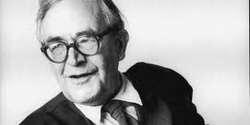
Which Comes First? Theology Proper or Christology?
by Luke Stamps
Karl Barth and those who have come in his wake have often criticized traditional approaches to theology because they are supposedly too abstract and insufficiently Christological. Classical theology is faulted for beginning with an abstract view of the divine nature and only then moving on to consider the person and work of Christ. We might think of Calvin’s Institutes which begins with “The Knowledge of God the Creator” (Book I) before addressing “The Knowledge of God the Redeemer in Christ” (Book II). Barthians, on the other hand, claim that our view of God must begin with Christ. We can only understand who God is by understanding and knowing Christ. So, for instance, Bruce McCormick has claimed, “Abstract doctrines of God have had their day. It is time for evangelicals to take more seriously their affirmation of the deity of Jesus Christ and begin to think about God on a thoroughly Christological basis” (“The Actuality of God: Karl Barth in Conversation with Open Theism” in Bruce L. McCormick, ed., Engaging the Doctrine of God: Contemporary Protestant Perspectives [Grand Rapids: Baker Academic, 2008], 242).
To be sure, there is some truth in this Barthian critique. As Christian theologians, we should view the entirety of God’s revelation through the lens of Christ and his work. Every doctrine should be informed by God’s definitive revelation in his Son (Hebrews 1:1-2). Every loci of systematic theology should be tethered to Christology. Our bibliology, theology proper, soteriology, pneumatology, ecclesiology, and eschatology should be explicitly related to our understanding of Christ’s person and work. Furthermore, we should allow Christ to cast his light backwards in time to the previous revelation of God in the Old Testament. B. B. Warfield once remarked that the Old Testament is a room richly furnished but dimly lit. There are many things in the Old Testament that can only be understood in their fullness by seeing them in the light of Christ.
At the same time, I wonder if the Barthian critique doesn’t overreach. More specifically, isn’t there some sense in which theology proper (our view of God’s nature, attributes, and works) precedes Christology? The sense I have in mind is redemptive-historical. To state the obvious: the Incarnation didn’t happen immediately after Adam’s Fall into sin. The Word became flesh only after God had set down centuries of special revelation concerning his nature. In the Old Testament, we learn that God is eternal, omnipotent, omniscient, omnipresent, immutable, incorporeal, and independent of his creation. Though we learn these things in the course of the (very concrete) history of Israel, many of these aspects of God’s character are rather abstract (is there anything concrete that we can say about God’s atemporality or incorporeality?). In short, by the time the Incarnation occurs, we already have a pretty good (indeed, a divinely inspired) picture of what God’s nature is like, including some aspects that could be characterized as “abstract.” So maybe classic theologians like Calvin weren’t too off base to treat the nature of God first and then inquire as to how the Incarnation might fit into this scriptural idea of God’s nature. Barth is rightly trying to avoid coming to Christology with an a priori idea about what God must be like. But if our conception of God’s nature is informed by the biblical revelation, is it inappropriate to ask questions about Christology that already assume a particular vision of God?
Luke Stamps is a Ph.D. candidate at The Southern Baptist Theological Seminary in systematic theology. Luke blogs at Before All Things. Luke is married to Josie, and they have two children, Jack and Claire.

